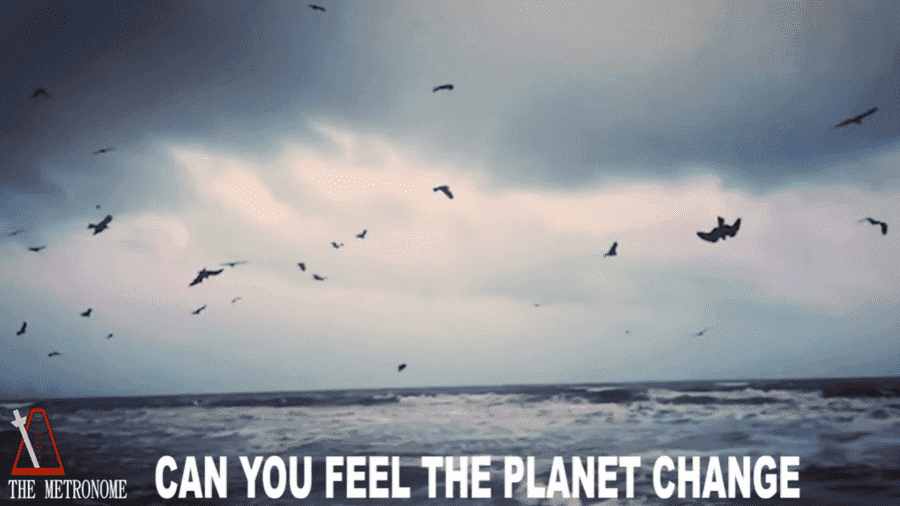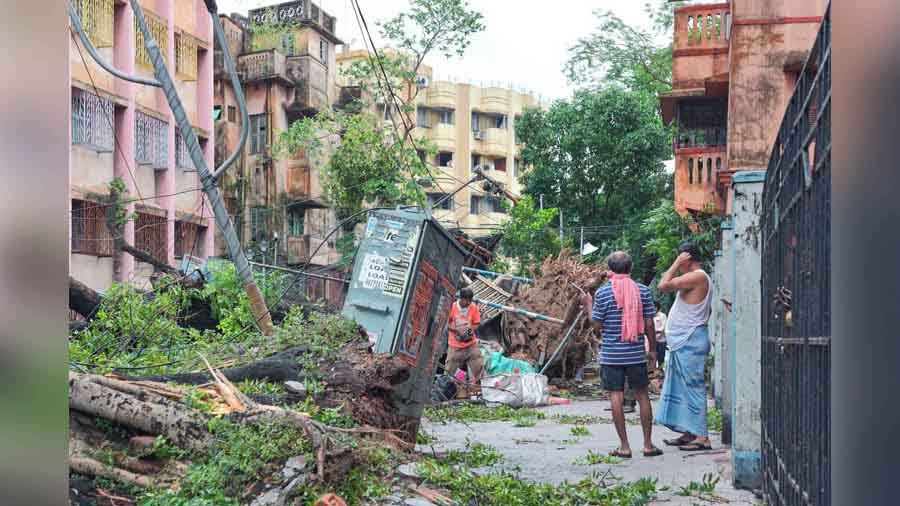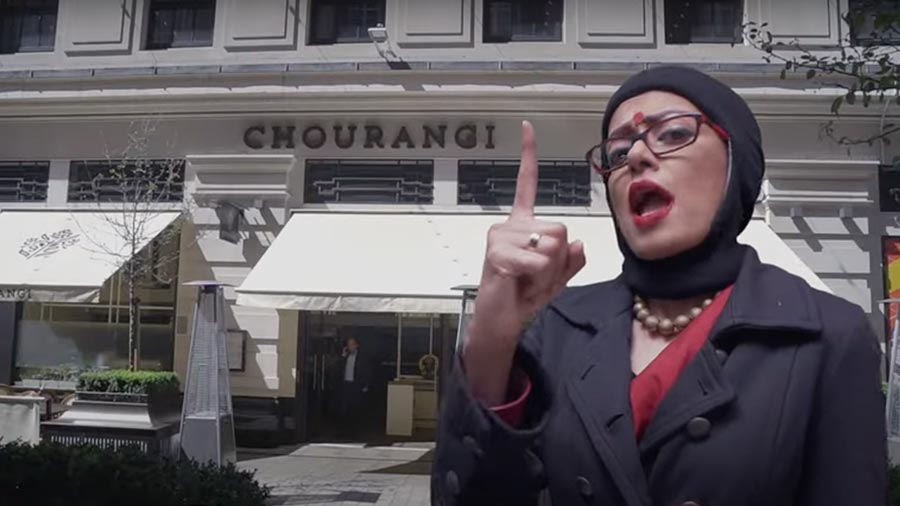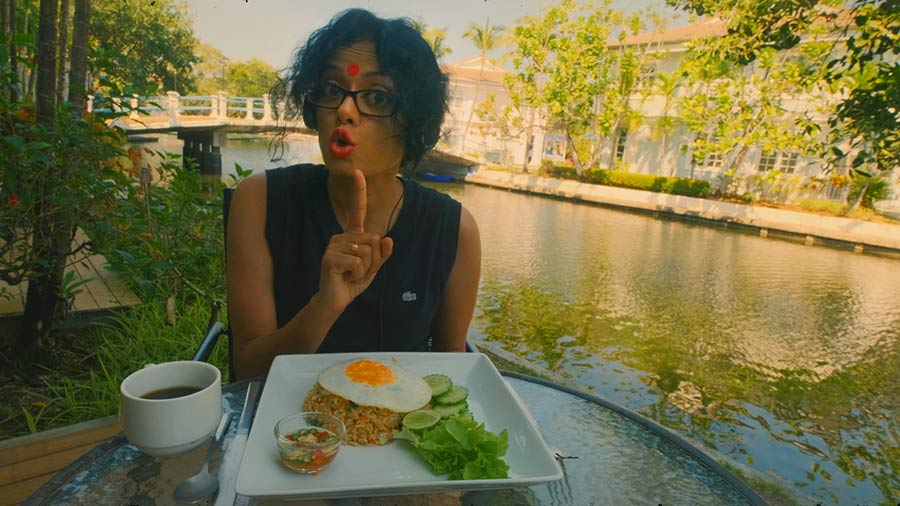Everyone knows her as the self-proclaimed ‘Bengali Aunty’ whose relatable videos have made us nod and laugh. On this World Environment Day, composer and singer-songwriter Sawan Dutta discusses her latest song vlog on climate change, created in collaboration with Jaya Organic Yojana. The video highlights the importance of individual actions and global efforts in combating the impending climate crisis.
My Kolkata: So glad to see people with influence advocating for climate change awareness! Tell us about your most recent song vlog
Sawan Dutta: Thanks so much! It was wonderful to have been asked to create this video by a trust like Jaya Organic Yojaya, who are actively working towards training rural communities for a sustainable, green future.
What is Smita Shah’s story and how is it connected to the video?
Smita Shah has been a long-term passionate environmentalist and filmmaker since 1970, with decades spent on creating awareness on the subject. She has also been involved with jazz, rock, metal and fusion music concerts, and with bringing MTV to the Indian stage.
She has been following The Metronome since its inception, and been appreciative of our work, since, she says, that I’m “one of the very few performers who composes and writes in the English language in India”
Jaya Organic Yojana is an environmental trust started by Smita. It is dedicated to working with marginalised farmers for responsible and productive agriculture, with a focus on soil, water, green cover, and on environmental, digital and financial literacy, rights and responsibilities. Their motto is Apni Khushali, Apni Zimmedari.
Smita and her trust approached me a couple of months back and asked me if The Metronome would create a climate change anthem and video for them.

The Metronome/YouTube
What is the foremost message you wish to convey?
The human species is running out of time on this planet, and rapidly!! By the time people wake up to what’s happening around them, it may be too late to do anything about it.
Our very next generations will face the sort of struggles for survival that we in our generation can’t even begin to imagine! People will die not just due to heat and extreme cold, but also droughts, floods and rising water levels, fires, food shortage, hunger, poor nutrition, poverty and other horrific things, in unprecedented numbers. And the mindsets, and choices made by our generation will have been responsible for their fate…
While it’s fairly obvious that the more impactful steps to address this can only be taken by our policy makers, there are steps we as individuals can take, to not make things worse…
You did something similar with the Dirty Beach song vlog…
Dirty Beach happened during the few weeks that I spent working on 2016 UN Champion of the Earth Afroz Shah’s historic beach clean-up at Versova Beach, while we lived across from the beach.
The lessons that I learnt from my experience there were powerful, valuable lessons that will always stay with me. I used to ask Afroz what kept him going, on his mission — to relentlessly clean up, and educate people about plastic pollution and circular economy— knowing that there may never be an end to the problem in our lifetime despite all his efforts.
He would say that if we don’t try at least this much, things will be much worse. Every little step in the right direction counts! It all contributes to a mindset change that spreads awareness.
What are the little things we can all do to make a difference?
Climate change is something we’re all constantly witnessing, every day. Kolkata is facing a heatwave and it’s 30 degrees Celcius in Bangalore in June, right now, which used to be unthinkable, even a year ago. My parents who’ve lived here for two decades have never needed an AC, but are contemplating getting one next year. The floods there last year did more damage to roads and property than the city has seen in a while.
This is NOT a situation that is about to get any better. Not if we just keep discussing the situation without making any of the necessary changes required, in our approach to life.
From my understanding of how climate change works, transportation fuels, industrial processes and electrical power stations are three key contributors of greenhouse gas emissions.

The Metronome/YouTube
I guess some of our BASIC mindsets need to change to address these three alone.
- We need to stop looking at excessive unnecessary travel as something to aspire to or brag about.
- Start looking at walking, cycling or using public transport whenever possible.
- Support local businesses and reduce usage of non-local goods that need to be transported over long distances.
- Stop looking at mindless consumption of industrial goods as aspirational goals and stop trying to outdo our friends and social media circles in buying more unnecessary things.
- Instead, take pride in sharing resources, repairing what we can, re-using and recycling whatever is possible and encouraging others to do this, to address the industrial component.
- Stop using single-use plastic, and basically convert to many of the habits of our earlier generations — like taking your own containers and bags to shops and not rely on their plastic packaging.
- Stop wastage of all resources starting with electricity — by switching off every unnecessary electrical switch at home / workplaces and minimise the use of electricity for any task that can be done without it.
- Plant more local trees, save and conserve our local biodiversity.
- Increase consumption of plant-based food to discourage livestock farming.
Kolkata will soon become the second Indian city to have a climate action plan, after Mumbai. Your thoughts?
It makes me very happy and proud to know this! None of us can afford to keep ignoring the impending catastrophe that’s coming our way, and the wiser we are, the sooner we will wake up to this reality.
What’s happening in the Sunderbans and Bangladesh is not exactly fair because this region is far from being one of the worst climate offenders. But unfortunately, the impact on this region will be disproportionately brutal, and they will bear the brunt of what people do in other more affluent parts of the world. So to really save this region, the effort to counter climate change will have to be on a global scale. And every small step in the right direction will contribute.
After Kosha Mangsho, Machher Jhol and Pet Pujo London, you did a Rasam recipe video. Tell us more about that…
The Rasam Recipe Song was inspired by my mum-in-law’s amazing and unique Rasam recipe — unique because it’s made of all natural ingredients, without any store-bought powders or spices, and it’s made without lentils. My mum-in-law lives in her 200-year-old ancestral traditional home in Kerala, in perfect harmony with nature, using ingredients from her kitchen garden, and water from the kitchen well — and spending even a few days there with her is as therapeutic as the food made in her kitchen.
What else has been keeping you busy?
I have been working on some rather diverse projects. Exploring the local cuisine of Karnataka and Bangalore, with my Bisi Bele Bath recipe song. Creating music for Quiz App and Contest called Quizzer of The Year, created by Siddhartha Basu and his team, now available on Sony Liv. Producing a Lounge Qawwali track featuring Amaan and Ayaan Ali Khan along with Amrita Kak on vocals — hopefully releasing sometime soon this month.


